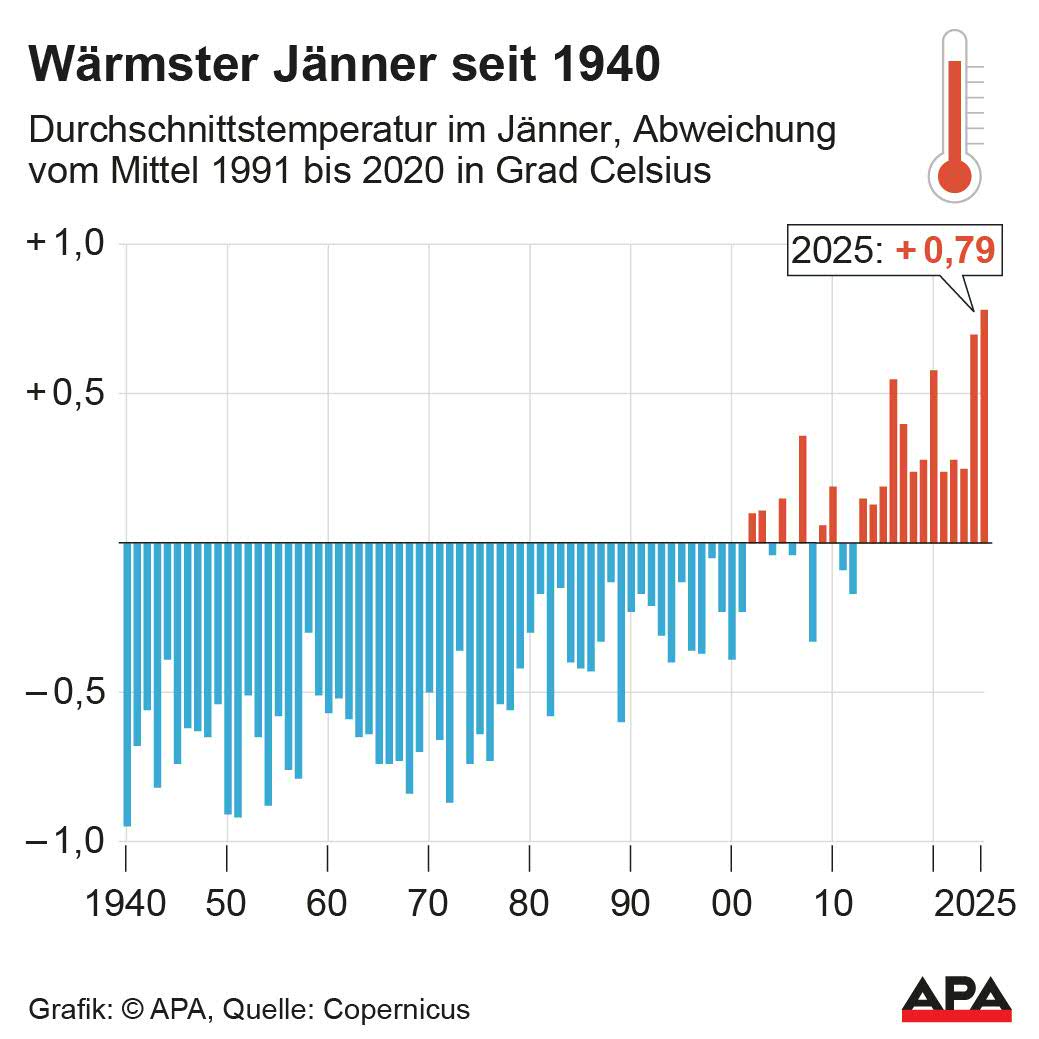Climate Change Causes Warmest January Ever

With a global average temperature of 13.23 degrees, it was 1.75 degrees above the pre-industrial level for the month of January, according to the climate change service of the EU's Copernicus program. The data is based on billions of measurements from satellites, ships, airplanes, and weather stations around the world.
Despite La Niña: January 2025 was the warmest January ever recorded
"January 2025 is another surprising month and continues the record temperatures observed over the past two years - despite the development of La Niña conditions in the tropical Pacific and their temporarily cooling effect on global temperatures," said Samantha Burgess from the European Centre for Medium-Range Weather Forecasts (ECMWF), which operates the climate change service.

January 2025 in Europe also very wet
In January 2025, it was above average wet in most regions of Western Europe as well as parts of Italy, Scandinavia, and the Baltics, according to the Copernicus announcement. Heavy rainfall led to flooding in some regions. Over the European mainland, January reached the second-highest average temperature after January 2020.
Climate change also heats up the seas
The average sea surface temperature was reported to be 20.78 degrees in January. This was the second-highest value ever recorded after January 2024. The area observed extends from the 60th parallel south, which runs south of South America, to the 60th parallel north, which is located north of the Scottish mainland, among other places.
January 2025 again above 1.5-degree target
The period of the last twelve months (February 2024 to January 2025) was on average globally 1.61 degrees above the estimated average from 1850 to 1900. January 2025 was also the 18th month in a 19-month period where the temperature was 1.5 degrees above the pre-industrial level. This corresponds to the period 1850 to 1900 in the report. However, the 1.5-degree target of the Paris Climate Agreement is not yet considered missed, as a longer period is looked at for this.
(APA/red)
This article has been automatically translated, read the original article here.





